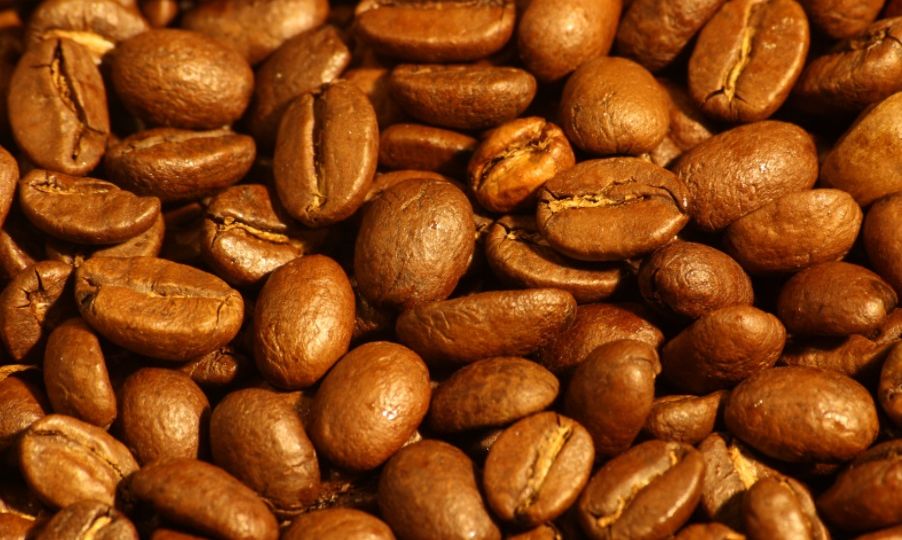
Arabica coffee is prized for its smooth, complex flavor profiles that range from sweet and nutty to sharp and fruity. It’s a type of coffee made from the beans of the Coffea Arabica plant, which is known for producing coffee with a higher quality taste compared to other coffee species, like Coffea canephora (Robusta).
Medium roast coffee strikes a delightful balance in the coffee roasting spectrum. It is roasted longer than light roast, allowing a richer and fuller body to develop without reaching the intensity of a dark roast. The beans achieve a medium brown color and exhibit no oil on the surface. This level of roasting accentuates the true character of the coffee, highlighting its natural flavors without the burnt taste that darker roasts might offer.
Key Takeaways of Arabica Medium Roast Coffee
- Arabica Medium Roast Coffee is celebrated for its balanced flavor that beautifully captures the essence of coffee. With a medium roast, you can expect a coffee that has a perfect blend of sweetness and complexity. Flavors like caramel, nuts, and sometimes a hint of fruitiness come through, providing a rich taste experience.
- This roast level typically exhibits lower acidity than its lighter counterparts, making it a smoother cup that’s easier on the stomach. This characteristic makes medium roast a preferred choice for those who find light roasts too sharp or dark roasts too heavy.
- Arabica Medium Roast is also versatile across brewing methods, whether you prefer the robust flavor of an espresso or the delicate nuances brought out by a drip or pour-over. This adaptability makes it a favorite among both casual coffee drinkers and connoisseurs alike.
- Lastly, its popularity is undeniable. Coffee lovers around the world cherish Arabica Medium Roast for its ability to deliver a consistently delightful coffee-drinking experience.
Origins and Popularity
The story of Arabica coffee begins in the ancient coffee forests of Ethiopia. According to legend, a goat herder named Kaldi discovered coffee after noticing that his goats became energetic after eating the berries from a certain tree. Kaldi reported his findings to the local monastery, leading to the spread of coffee cultivation and consumption across the Arabian Peninsula.
As trade expanded, so did the distribution of coffee. By the 15th century, coffee was being grown in the Yemeni district of Arabia and by the 16th century, it was known in Persia, Egypt, Syria, and Turkey. Coffeehouses became popular and were places of intellectual discussion, earning the title, “Schools of the Wise.”
The popularity of medium roast coffee has surged in recent years as part of a broader third wave coffee movement, which emphasizes high-quality coffee and artisanal brewing methods. Medium roast offers a perfect balance that appeals to a wide audience, preserving the unique flavors of the beans while providing a richer taste than lighter roasts.
Brewing Techniques and Best Practices
When it comes to brewing medium roast coffee, there are several methods that highlight its balanced flavor profile. The French Press is favored for its ability to steep coffee grounds in boiling water, which extracts the coffee’s oils, aroma, and flavors more completely than other methods. The result is a rich and full-bodied cup.
Another excellent method is the AeroPress, which uses air pressure to push hot water through the coffee grounds, creating a smooth, robust coffee without bitterness. This method is particularly good at highlighting the subtle flavors inherent in medium roast beans.
To maximize flavor extraction and ensure freshness, grind your coffee beans just before brewing. This preserves the natural oils and flavors that begin to oxidize quickly once the beans are ground. Additionally, use fresh, cold water and maintain proper brewing temperatures (between 195°F to 205°F) to optimize the extraction process. Store your beans in an airtight container away from direct sunlight and heat to maintain their freshness.
Health Benefits and Considerations
Medium roast coffee not only delights with its flavor but also offers notable health benefits, particularly from its antioxidants. These compounds, primarily chlorogenic acids, are praised for their ability to combat free radicals, which can reduce oxidative stress and may lower the risk of some diseases. The roasting process can affect the levels of these antioxidants, with medium roasts often retaining a higher content than darker roasts.
Moreover, medium roast coffee is known for being gentler on the stomach. It strikes a balance in acidity, which can make it more compatible with individuals who have sensitive stomachs or conditions like acid reflux. Unlike darker roasts, which may aggravate certain digestive issues due to their high acidity, medium roasts offer a smoother alternative that’s easier to digest while still providing a rich, satisfying taste.
Economic and Environmental Impact
Sustainable practices in Arabica coffee farming are crucial for both the environment and the economy of the regions that cultivate these beans. Many coffee growers have adopted methods like shade-grown coffee, which not only helps preserve natural habitats but also improves the quality of the coffee. This method reduces the need for artificial fertilizers and pesticides, promotes biodiversity, and results in a richer soil that can sustain crops longer.
From an economic perspective, coffee farming significantly impacts local communities. It provides employment and is often one of the primary sources of income in rural areas. However, the coffee market’s volatility can lead to instability for these farmers. Initiatives like fair trade and direct trade aim to address these issues by ensuring farmers receive a fair price for their coffee, which supports community development and economic stability.
These sustainable practices are not just beneficial for the environment; they also enhance the quality of the coffee itself, making Arabica beans from conscientiously managed farms more sought after in the global market. This demand can lead to better wages and improved livelihoods for farmers, creating a positive cycle of growth and sustainability.
FAQs
How does the caffeine content in medium roast compare to other roasts? There’s a common misconception that darker roasts have more caffeine. In reality, the difference in caffeine content between light, medium, and dark roasts is minimal. Medium roast offers a good balance, providing enough caffeine for a noticeable energy boost without the intensity of lighter roasts.
What is the shelf life of medium roast coffee? Properly stored, whole bean Arabica medium roast coffee can remain fresh for about six to nine months. Once ground, it’s best to use the coffee within two weeks to enjoy its optimal flavor. To extend its shelf life, store coffee in an airtight container away from direct sunlight and heat.
How can I preserve the flavor of my coffee? To keep your coffee tasting fresh, grind beans right before brewing. This minimizes exposure to air, which can degrade the coffee’s natural flavors and aromas. Additionally, using the correct water temperature (between 195°F to 205°F) when brewing will ensure that you extract the coffee’s full spectrum of flavors effectively.
Final Thoughts
Throughout this discussion on Arabica medium roast coffee, we’ve explored its rich history, versatile flavor profile, and the sustainable practices involved in its production. Arabica medium roast is appreciated for its balanced taste that highlights both the sweetness and body of the coffee without overwhelming bitterness or acidity.
This coffee type is not only a testament to the craft of coffee making but also to the care that farmers put into every bean. Given its broad appeal, Arabica medium roast serves as an excellent introduction for those new to specialty coffee while still satisfying the seasoned palate.









